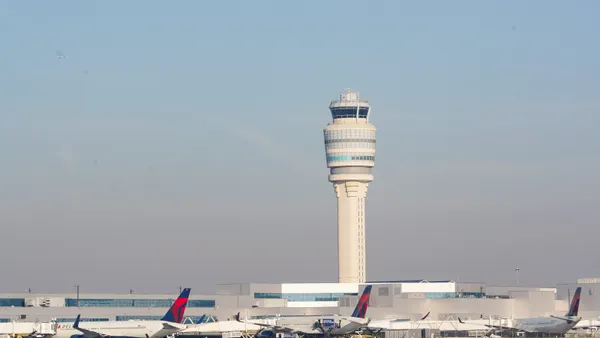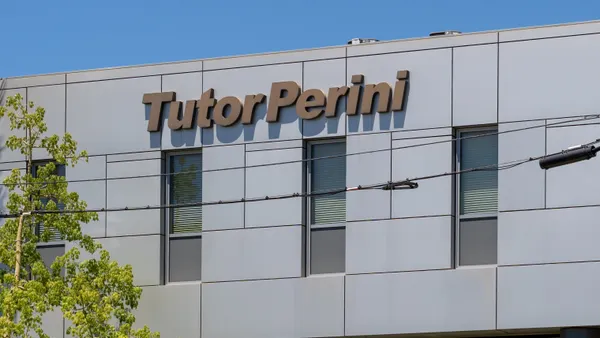Dive Brief:
- The Michigan Department of Transportation is getting ready for a potential fight with a Detroit businessman over land necessary to build the $2 billion Gordie Howe International Bridge from Detroit to Windsor, Ontario, according to the Detroit Free Press.
- If Manuel Mouron, owner of the competing private U.S.-to-Canada Ambassador Bridge, won't sell the state a 42-acre parcel in the planned path of construction, MDOT could seize the property under eminent domain powers and let the court decide on the price later.
- The Mouron property purchase is just one of 30 believed to be delaying bridge construction. Total land required for the bridge, 637 parcels, will cost the state approximately $370 million.
Dive Insight:
Mouron has previously sued the state to stop construction of the bridge but has been unsuccessful. He even applied to build a second span of the Ambassador Bridge in order to compete with the Gordie Howe. Mouron's bridge currently handles nearly 25% of trade between the U.S. and Canada and is the only major privately owned connector between the two countries.
The two-mile, six-lane Gordie Howe International Bridge could be one of the five longest in North America when complete and is being built under a public-private partnership (P3). Canada is set to pay approximately $2.1 billion for the actual bridge construction plus $250 million for a toll plaza on the U.S. side. The U.S. will pay for its portion of bridge costs via collected tolls. Canadian officials recently announced that they will issue Requests for Proposal to potential private construction teams soon.
Canada began utilizing the P3 structure well before the project structure gained popularity in the U.S. In fact, Brendan Bechtel, soon-to-be-CEO of global engineering and construction giant Bechtel, encouraged America's government leaders to utilize more P3s in tackling the nation's infrastructure problems, using Canada's Infrastructure Ontario as a model.












